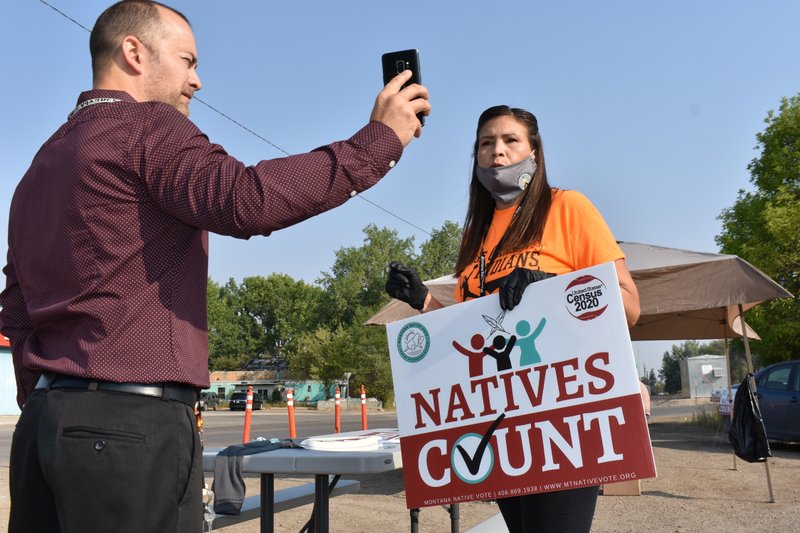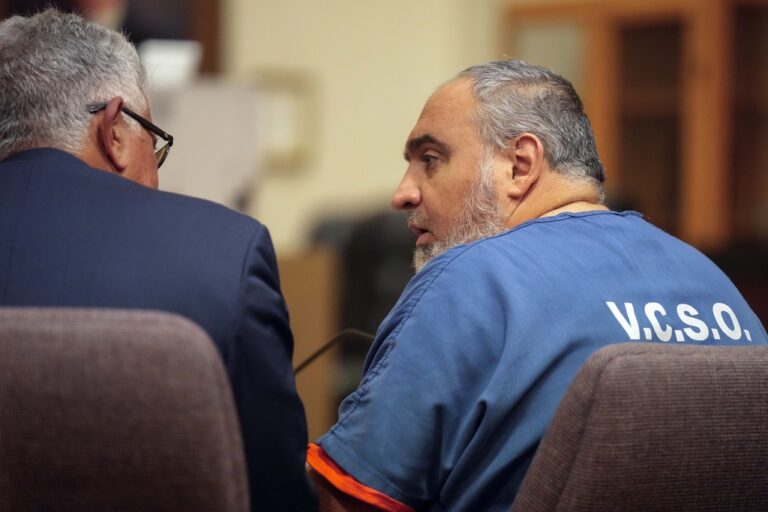Census advocates across the nation made last-ditch efforts Thursday to get as many households to answer the 2020 census, which has been challenged by a pandemic, natural disasters, court fights and the Trump administration’s push to have it end a month earlier than planned.
The tally was mandated to halt at 11:59 p.m. Hawaii Standard Time on Thursday — 5:59 a.m. Friday for people living on the East Coast — but questions lingered about deadlines and who gets counted when congressional seats are allotted.
Advocates are particularly worried that minorities, and people in rural and tribal areas, are going to be missed due to the rushed ending of the count, resulting in less federal funding for those communities and perhaps fewer congressional seats and electoral votes for states that have large minority populations.
Census advocates who had been planning on two more weeks to encourage people to answer the census found themselves scrambling after the Supreme Court ruled on Tuesday that the Trump administration could end the nation’s head count this week.
“Everybody is leaning in hard to try to make sure they can reach as many people as possible,” said Kathay Feng, an official with Common Cause, the good-government advocacy group.
In Rhode Island, advocates went to bus hubs in Providence to make sure people had filled out the forms that ask about the makeup of their households. Armed with tablets to help residents answer the questionnaire online, teams of advocates in New York City went canvassing in neighborhoods in Brooklyn and Queens. In Detroit, residents were being given the chance to win $25 gift cards in exchange for driving to a church parking lot to fill out their census forms.
In Los Angeles, Esperanza Guevara, the census campaign manager for the Coalition for Humane Immigrant Rights, was leading phone-banking efforts to encourage people to fill out the census form.
“Our phone banking team scrambled to put together one final push,” Guevara said.
The census is used to determine how $1.5 trillion in federal spending is distributed annually, as well as how many congressional seats each state gets in a process called apportionment.
Tens of thousands of temporary census takers had been hired by the U.S. Census Bureau to knock on the doors of homes whose residents hadn’t filled out their census forms. On Thursday, many filled out employee exit surveys and turned in the mobile devices they’d used while canvassing.
After the Supreme Court ruling, the Census Bureau said it would still be gathering data through Thursday, but it stopped some operations on the spot without taking advantage of the extra two days, according to some census takers. In Arkansas, an operation to send people into hard-to-count neighborhoods was suspended two days before the count was ending.
Thursday’s deadline came after the Supreme Court ruled in favor of the Trump administration, which had argued the census needed to end immediately in order for the Census Bureau to have enough time to process the data to meet a congressionally mandated Dec. 31 deadline for turning in apportionment numbers. Associate Justice Sonia Sotomayor dissented, saying that minorities and others “will disproportionately bear the burden of any inaccuracies.”
By sticking to the Dec. 31 deadline, the Trump administration would end up controlling the numbers used for apportionment, no matter who wins next month’s presidential election. Opponents fear the administration will depart from past practice and leave out people who are in the U.S. illegally — Trump has directed the Census Bureau to do just that for the apportionment count, but that currently is being fought in court. The Trump administration earlier had tried to get a citizenship question on the 2020 census questionnaire but was blocked by the Supreme Court last year.
Advocates still hold out hope that Congress will pass legislation that will extend the apportionment deadline from Dec. 31 to the end of next April in order to give the Census Bureau enough time to check the quality of the data, remove duplications and fill in missing information with administrative records.
The Census Bureau originally had allotted five months for the data processing phase, but that time period shrinks to less than three months if the statistical agency tries to meet the Dec. 31 deadline. Advocates and users of census data worry that isn’t enough time, and even some of the Census Bureau’s top brass said this summer that it would be impossible to meet the Dec. 31 deadline. They later revised their statements to say it could be done if the count had stopped at the beginning of the month.
Also left unanswered is whether the Census Bureau will be able to come up with a methodology for figuring out who who is in the country illegally in order to carry out Trump’s directive, which a panel of federal judges in New York ruled was unlawful. The Trump administration has appealed to the Supreme Court.
(AP)











